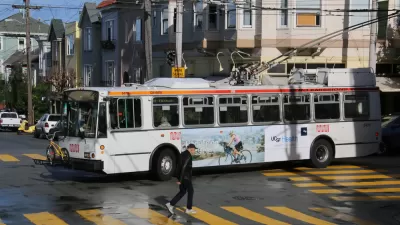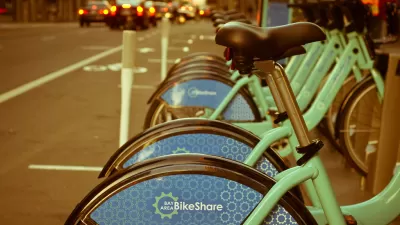City Accelerator selected four cities to test new options for financing the infrastructure investments of the 21st century and beyond.
City Accelerator recently announced its third cohort, focusing on innovative infrastructure finance programs. Pittsburgh, Saint Paul, San Francisco and Washington, D.C. survived a selection process that began with a December 2015 invitation from the Citi Foundation and Living Cities to 40 of the nation's largest cities.
The winning cities now have an opportunity to explore a new set of financing options to help address the funding gaps for high priority capital projects—everything from "seawalls to stairs, streetlights to stormwater," according to a post by Steven Bosacker and Kristen Scheyder announcing the winners.
According to the post, "[w]e chose the four cities because they correlate their success on closing budget gaps in their capital plans to expanded physical and economic mobility, reactivated land for affordable housing and jobs, and increased public safety. In short, they want to make their cities a better place for all residents."
The post includes a quick summary of each of the winning proposals, each focusing on infrastructure needs that will be familiar to many other cities around the country.
Last year's cohort focused on innovative practices in community engagement.
FULL STORY: Introducing the City Accelerator's Third Cohort

Planetizen Federal Action Tracker
A weekly monitor of how Trump’s orders and actions are impacting planners and planning in America.

Congressman Proposes Bill to Rename DC Metro “Trump Train”
The Make Autorail Great Again Act would withhold federal funding to the system until the Washington Metropolitan Area Transit Authority (WMATA), rebrands as the Washington Metropolitan Authority for Greater Access (WMAGA).

The Simple Legislative Tool Transforming Vacant Downtowns
In California, Michigan and Georgia, an easy win is bringing dollars — and delight — back to city centers.

The States Losing Rural Delivery Rooms at an Alarming Pace
In some states, as few as 9% of rural hospitals still deliver babies. As a result, rising pre-term births, no adequate pre-term care and harrowing close calls are a growing reality.

The Small South Asian Republic Going all in on EVs
Thanks to one simple policy change less than five years ago, 65% of new cars in this Himalayan country are now electric.

DC Backpedals on Bike Lane Protection, Swaps Barriers for Paint
Citing aesthetic concerns, the city is removing the concrete barriers and flexposts that once separated Arizona Avenue cyclists from motor vehicles.
Urban Design for Planners 1: Software Tools
This six-course series explores essential urban design concepts using open source software and equips planners with the tools they need to participate fully in the urban design process.
Planning for Universal Design
Learn the tools for implementing Universal Design in planning regulations.
Smith Gee Studio
City of Charlotte
City of Camden Redevelopment Agency
City of Astoria
Transportation Research & Education Center (TREC) at Portland State University
US High Speed Rail Association
City of Camden Redevelopment Agency
Municipality of Princeton (NJ)




























